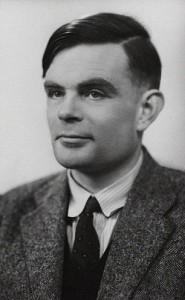I am Charlotte Victoria Michaels and I am 18 years old. I was born and raised in London, England and I am currently studying at the University of British Colombia in Vancouver, Canada. I decided to travel half way across the world for university because I have a curious mind – a mind that loves exploring new places, meeting new people and encountering diverse cultures, all things that I could find at UBC. Whilst fashion, food and friends form a huge part of my life I also feel free and at home when racing down a mountain on a pair of skies or walking windswept along a beach.
Life narratives are ones reflection on their past or present experiences, which they identify as important moments. Often these events build personalities, they affect one’s dreams, desires and perspectives of the world. But how does one’s own experiences affect other peoples attitudes towards them and the world? You could look at the example of how Alan Turing, a British Mathematician, created an electromechanical device – the Bombe – during World War II which decrypted the Nazi Germany Enigma Code. He invented a machine which could carry out any given instructions on a universal scale. This revolutionary idea became the blue-print for the electronic computer. Computers are now used internationally, they have allowed globalization to occur, which has led to culturally diverse locations all over the world. Their development has been a crucial factor in shaping demographics, leading to new laws and ever more accepting societies. Alan Turing was an essential figure in shaping the dynamics of our world today, yet he committed suicide due to the homophobic laws of society that existed in England until 1967. Although his contributions to society were great, his life was wrought with social difficulties due to his sexual orientation that people could not see past and could not predict the monumental impact he has had in the world. With examples like this, I hope to explore how life narratives affect the world we live in and how they continue to shape our ever changing global world.

Image source: (1) Google images
Will Shelling
September 21, 2015 — 8:42 pm
Despite much pushing from my friends, I didn’t get a chance to watch The Imitation Game like my friends had suggested to me. However, thanks to your post, I was finally able to be pushed to find out more about Alan Turing, his life, and work with the Allies in WWII.
One of the things that ran through my mind while reading your post was that of other great innovators who didn’t recieve recognition for their contributions to society. One of the main ones that I was thinking of was Lewis Latimer, the inventor of the light bulb filament. Due to his color, his recognition for his work has in a way been “mothballed” and given to Thomas Edison. However, if it wasn’t for Latimer, Edison’s lightbulb would’ve only lasted several days at most, as opposed to several months if not years.
Is what society view’s as wrong or corrupt that makes us discredit or even completely forget individuals and their contributions to society? Or is it the lack of foresight that we as humans possess that makes us not hold the work of others to such an esteem, merely because we are unable to see it’s future significance.
I’ve bookmarked an article of Alan Turing that I’m going to read in the morning with some tea thanks to you. Lovely post by the way! Also welcome to Canada!